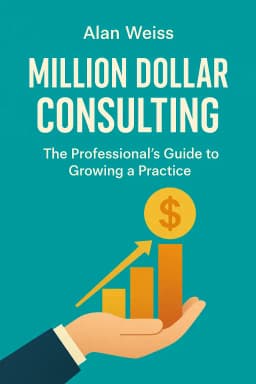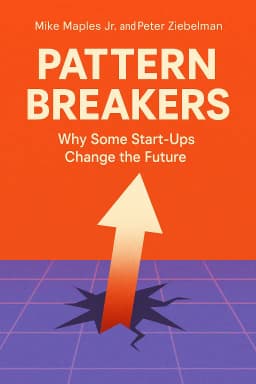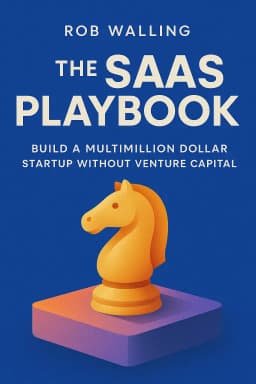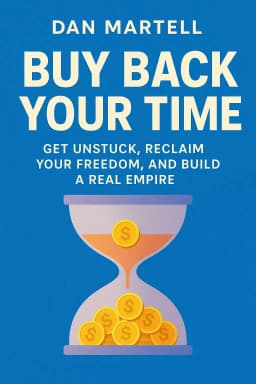
Blood, Lies, and Bad Data: An Analyst's Autopsy of Theranos
Golden Hook & Introduction
SECTION
Atlas: Eric, as a data analyst in finance, you live and die by the numbers. So let me ask you: what's the most dangerous thing a leader can say? Is it "the numbers are bad"? Or is it… "ignore the numbers, believe in the vision"?
Eric: That's a great question. The second one is infinitely more dangerous. Bad numbers are a problem to be solved. You can analyze them, find the root cause, and fix the process. But being told to ignore the numbers? That's a directive to abandon reality. It’s a systemic failure, a cultural crisis waiting to happen.
Atlas: Exactly. And that is the central question at the heart of the Theranos scandal, which we're dissecting today using John Carreyrou's incredible book, 'Bad Blood'. It's a story of ambition, technology, and staggering deception. Elizabeth Holmes, the founder, was hailed as the next Steve Jobs. She promised to revolutionize healthcare with a device that could run hundreds of blood tests from a single drop of blood from your finger.
Eric: The vision was incredible. It’s the kind of disruption that investors dream of. It touches on efficiency, data accessibility, personal health... it ticks all the boxes.
Atlas: It did. But the vision was a mirage. Today we'll dive deep into the Theranos saga from two critical perspectives. First, we'll explore the power of a seductive narrative and how it masked a technological void. Then, we'll dissect the culture of fear that actively suppressed the truth and corrupted the data.
Deep Dive into Core Topic 1: The Vision vs. The Void
SECTION
Atlas: So let's start with that vision. Holmes was a master storyteller. But from the very beginning, the story was all she had. A perfect example comes from 2006, when Theranos was just a three-year-old startup. They had a massive opportunity: a live demonstration for executives from Novartis, the European drug giant. This was their chance to prove the technology and secure a huge financial arrangement.
Eric: This is a pivotal moment for any startup. A successful demo can change everything.
Atlas: Right. So Holmes and her team fly to Switzerland. But when they arrive, disaster strikes. One of their two blood-testing readers, the core of the system, has malfunctioned. They work through the night, frantically trying to fix it, but it's no use. The demo is just hours away. So, what do they do?
Eric: A rational company would postpone. They'd explain the technical glitch, document it, and reschedule. It's embarrassing, but it maintains integrity.
Atlas: They did the opposite. The team in California was instructed to beam over a result during the live demonstration. So, the Novartis executives are watching, impressed, as the machine seemingly works its magic. They have no idea the result they're seeing on the screen was pre-recorded and sent from halfway across the world. After the demo, Holmes sends an email to her team. It reads, simply: ‘it was perfect!’
Eric: Wow. From an analyst's perspective, that's the original sin. It's not just a lie; it's proof that there's no process for failure. Instead of documenting the bug and improving the system, they chose deception. That single data point tells you everything you need to know about the company's culture and its risk profile. You're not investing in a technology company at that point; you're investing in a theater production.
Atlas: A theater production is the perfect way to put it. And this deception wasn't a one-off; it became the business model. This "Apple Envy," as the book calls it, was everywhere. Holmes famously wore a black turtleneck, just like Steve Jobs. She hired former Apple designers, like Ana Arriola, not to perfect the technology, but to perfect the of the technology. They spent immense resources on the aesthetics of the box.
Eric: All while the technology inside was failing.
Atlas: Exactly. The first device, the Theranos 1.0, never really worked. So they pivoted to a new machine they called the "Edison." And what was this revolutionary device? It was a commercially available glue-dispensing robot, bought off the shelf, with its arm reprogrammed to move pipette tips around. They literally put a sticker on a glue robot and called it innovation.
Eric: That's unbelievable. It's a classic case of focusing on the user interface to distract from a broken back-end. In finance, we see this with some fintech apps that have a beautiful, slick interface, but the underlying infrastructure is a mess. The surface-level aesthetics are designed to stop you from asking the hard questions. The most important question is always, 'Can I see under the hood?' And it sounds like Theranos's answer was always a very firm 'No.'
Atlas: It was. They claimed it was to protect "trade secrets." But the real secret was that there was nothing there. They were selling the story of a beautiful, empty box.
Deep Dive into Core Topic 2: The Culture of Fear
SECTION
Atlas: And that 'No' wasn't just for outsiders. It was for their own people. Which brings us to our second point: the culture of fear that was built to protect the lie. If you questioned the vision, you became the enemy.
Eric: This is where leadership becomes so critical. A healthy organization has to have channels for dissent.
Atlas: At Theranos, the channel for dissent led directly to the exit. The company's CFO, a man named Henry Mosley, was the one who discovered the Novartis demo was faked. He was a seasoned executive from Intel. He went to Holmes and confronted her, saying this was unethical and unsustainable. Her response? She looked him in the eye and said, "Henry, you’re not a team player. I think you should leave right now." He was fired on the spot.
Eric: Fired for doing his job. For performing his fiduciary duty, really. That sends a chilling message to everyone else in the company: stay silent or you're next.
Atlas: And that message was received loud and clear. But the most powerful story of this culture of fear comes from Tyler Shultz. Now, Tyler was the grandson of George Shultz, the former Secretary of State, who was a prominent member of the Theranos board. Tyler, a young Stanford grad, joins the company, full of idealism.
Eric: He has a personal connection, a family stake in its success.
Atlas: Exactly. But he and his colleague, a woman named Erika Cheung, are put on the team validating the Edison machines, and they quickly discover the whole system is a sham. They witness data being manipulated, results being cherry-picked to look good, and quality-control failures being completely ignored. For one test, to detect syphilis, the Edison devices were only correctly identifying positive samples 65% of the time. But Theranos reported a sensitivity of 95% in its official validation report.
Eric: That's not just bad data; that's fraud. And in a medical context, it's incredibly dangerous. A 30-point discrepancy in a syphilis test could have devastating public health consequences.
Atlas: Tyler knew this. He couldn't stay silent. He wrote a detailed email to Elizabeth Holmes, outlining his concerns about the data manipulation and the proficiency testing, which he correctly identified as a form of cheating. He expected a serious discussion. Instead, he gets a blistering, threatening email back, not from Holmes, but from her partner and the company's COO, Sunny Balwani. Balwani belittles him, calls his concerns "reckless," and accuses him of being ignorant.
Eric: So the official channel for raising concerns was met with a personal attack and a threat.
Atlas: It gets worse. Tyler quits. But Theranos isn't done with him. They suspect he's a source for the Wall Street Journal. One day, his grandfather, George Shultz, calls him to his house. Tyler arrives, expecting a family conversation, but he's ambushed. Waiting for him are two of Theranos's top lawyers from the firm Boies Schiller. They threaten to sue him into financial ruin unless he signs an affidavit naming other sources and recanting his story.
Eric: They used his own grandfather to set a legal trap. That's a catastrophic failure of leadership and basic human decency. An ENTJ like myself, we look for competence and systems that work. This is the opposite. They're not solving the problem—the faulty data—they're trying to eliminate the person who found the problem. A healthy organization rewards people who find flaws. Theranos was designed to destroy them.
Atlas: It was. And it's a testament to Tyler's character, and Erika's, that they stood their ground. They faced down one of the most powerful law firms in the country, and pressure from their own families, because they knew the data was wrong and that people's lives were at stake.
Eric: They are the real heroes of this story. They upheld their professional and ethical integrity when the entire system, from the CEO to the board, was designed to crush it. It's a powerful lesson in the importance of individual courage.
Synthesis & Takeaways
SECTION
Atlas: So we have these two toxic forces working together: a seductive story with no data to back it up, and a brutal culture of fear designed to punish anyone who pointed that out.
Eric: It's a feedback loop of deception. The story gets bigger and more grandiose, so the lies needed to protect it have to get bigger, and the fear needed to enforce the lies has to get more intense. It's a house of cards, and each new lie is just another card that makes the eventual collapse even more spectacular.
Atlas: It's a powerful lesson for anyone in a position of leadership or analysis. So, Eric, for our listeners—the innovators, the leaders, the analysts out there—what's the one key takeaway? What's the 'Theranos test' they can apply in their own professional lives to avoid a disaster like this?
Eric: It's simple, and it's something I think about in my own work. Ask for the inconvenient data. When someone presents you with a perfect, revolutionary story, ask to see the failures. Ask for the error logs, the validation runs that didn't work, the customer complaints. A leader who is confident in their process and their product will be proud to show you how they learn from failure. A leader who is selling a fantasy will call you 'not a team player.'
Atlas: And that's your signal.
Eric: That's your signal. That's when you know the vision is just an empty box. And that's when you know you need to run.









